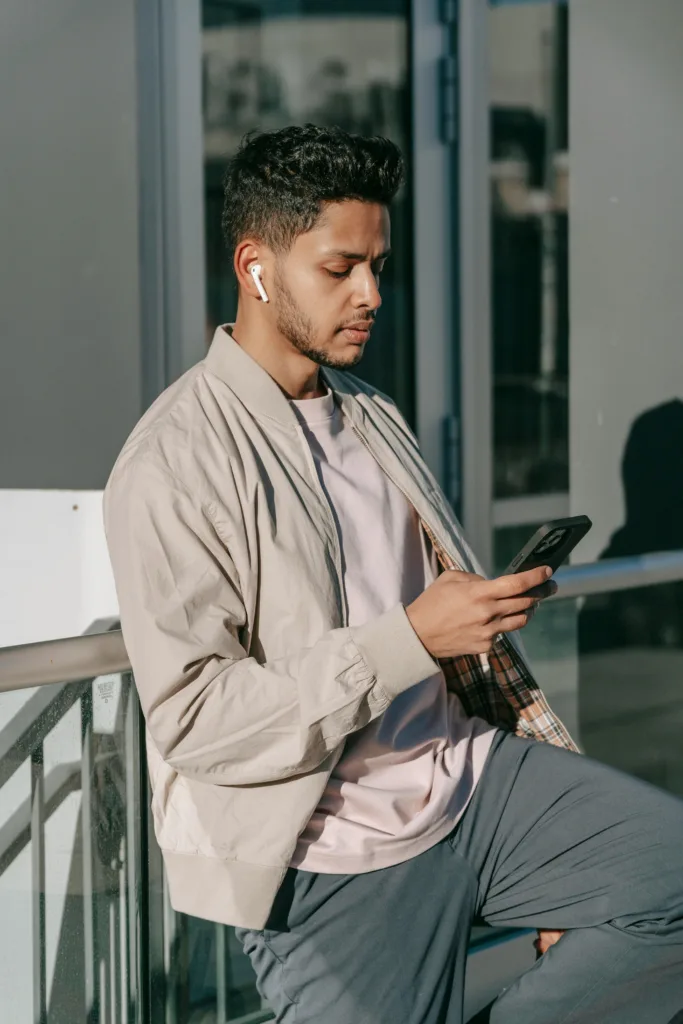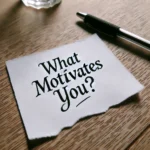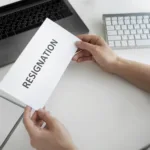This guide offers step-by-step instructions and a downloadable template for crafting an effective thank-you email post-interview to enhance your job application.
- Importance of a thank you email after an interview
- Different types of post-interview follow-ups
- When to send the thank you note?
- How do you capture attention with the subject line?
- Downloadable post-interview thank-you email template
- Personalizing the thank-you letter
- Reiterating your interest
- Addressing any concerns: The follow-up as a tool for clarification
- Managing expectations while waiting to hear back
- Conclusion: The power of a well-crafted thank-you note
- FAQ: Mastering the art of the thank you note after an interview
Importance of a thank you email after an interview
Sending a thank you letter after an interview is crucial in the job search process. This gesture, more than a formality, reminds the interviewer of your qualifications and enthusiasm for the job. A well-crafted thank-you note should be concise yet personalized. It’s an opportunity to reiterate your interest in the position, recap an important discussion point, or add any missed information. This simple act can keep your candidacy on top of the mind for the hiring manager and set you apart in a competitive job market.
Different types of post-interview follow-ups
In the job interview process, follow-up communications take various forms, each significant in its own right.
Thank-you email after a phone interview
A thank-you letter post-phone interview can sometimes be overlooked. This email needs a clear subject line, such as “Thank You for the Phone Interview,” and should express gratitude with phrases like “Thank you for taking the time to talk.” It’s a chance to briefly reiterate your interest in the job and highlight a key point discussed during the call.

Follow-up email after job Interview with the hiring manager
Conversely, a note email after an in-person interview with a hiring manager requires a slightly different approach. While it should also be sent quickly, this email can delve deeper into the topics discussed. It’s an opportunity to remind the interviewer of your qualifications and how they align with the job opening. A subject line like “Following Up on Our Interview” sets the right tone, and the email should reemphasize your enthusiasm for the position and the value you bring.
Both types of emails are critical in making a lasting impression and demonstrating your professionalism in the job search process.
When to send the thank you note?
The right timing for sending a thank-you note after an interview is crucial in making a lasting impression. Whether it’s a phone interview, video interview, or an in-person meeting, it’s essential to send your thank-you note within 24 hours of the interview. This promptness shows your enthusiasm and keeps your application fresh in the interviewer’s mind. In your email, thank the interviewer for taking the time to meet with you and express your interest in the position.
Be sure to keep it short and sweet while also reflecting on a specific topic discussed in the interview. This could be a great opportunity to include any additional information you may have forgotten to mention. Always end with a polite note like, “I look forward to hearing from you,” and offer them not to hesitate to contact you if further information is needed. Sending a post-interview thank-you note is more than a formality; it’s an essential step in the interview process, reminding the hiring manager or recruiter of your keen interest and suitability for the role.
How do you capture attention with the subject line?
Capturing attention with the subject line of your post-interview thank you email is crucial. To craft the perfect interview thank-you email or thank-you letter after an interview, it’s important to keep it short and sweet yet meaningful. Make sure to mention something specific that you discussed in the interview, as this personalizes the email and shows that you were attentive.
For instance, your subject line could be, “Thank you for the opportunity to interview for the manager position,” or “I enjoyed learning about the email marketing role.” This approach is much more effective than a generic “Thank You” and helps your email stand out. Remember, the subject line is your first chance to make a lasting impression, so take the time to write something that reflects your genuine interest and reminds the interviewer of your conversation. If you’re unsure, refer to sample thank-you notes or email examples for inspiration. This small effort can significantly impact your job search journey.
Downloadable post-interview thank-you email template
Here’s a sample thank-you template to guide you. It is also downloadable, so you can revise it as you like.
Subject: Thank You for the Opportunity – [Your Name]
Hi [Interviewer’s Name],
Thank you for taking the time to meet with me today for the [Job Title] position. I enjoyed learning about [something discussed in the interview] and was particularly fascinated by [specific detail mentioned in the interview].
I am very interested in the position and believe that my skills in [relevant skill or experience] align well with the team’s goals. Furthermore, the company’s culture, which emphasizes [key cultural aspects, e.g., innovation, teamwork, community engagement], resonates deeply with my personal values and work ethic. I am excited about the prospect of not only contributing my functional expertise but also being a part of a work environment that fosters [specific cultural elements, e.g., collaborative growth and creative problem-solving].
I look forward to hearing from you regarding the next steps in the hiring process.
Best regards,
[Your Name]
[Your Contact Information]
Personalizing the thank-you letter
Personalizing your post-interview thank-you note can make a significant difference. While crafting the email after a job interview, it is important to reflect on what was discussed in the interview. Mention specific points or themes that were mentioned in the interview, showing that you were attentive and engaged. Go back to the interview questions you recall; if a particular project or challenge was highlighted, express how you enjoyed learning about it and how you see yourself contributing.
Reiterating your interest
When you write a follow-up note after your interview, it’s an opportune moment to explicitly state your desire for the job opportunity. This act demonstrates not just your enthusiasm but also your commitment to the role. In your email marketing yourself as the ideal candidate, reiterate the key points from your resume and cover letter, enhancing the connection between your skills and the job requirements.
The time to write a sincere thank-you note or letter is critical. It’s a chance to thank the interviewer for taking the time to interview you and to express how much you want the job. Whether it’s a cover letter, video interview, or any part of the interview process, ensure that your interview follow-up communicates clearly that you’re eagerly awaiting the next interview and are deeply interested in the opportunity.
Addressing any concerns: The follow-up as a tool for clarification
If you have lingering questions or concerns after your interview, a follow-up letter offers a tactful avenue to address them. When you’re writing this email, it’s important to balance your inquiries with gratitude. Start by sending a thank you note, expressing appreciation for the job opportunity and the time taken to interview you. In your email, reference specific points from your resume and cover letter to reinforce your suitability for the job opening. Then, seamlessly transition into your questions, framing them in a way that shows your continued interest and eagerness to understand more about the role. Ensure your tone remains professional and courteous, emphasizing that your queries stem from a genuine desire to learn more about the job and the company. This approach in your interview follow-up not only clarifies any doubts you may have but also reaffirms your enthusiasm for the position.
Managing expectations while waiting to hear back
After sending your follow-up email, it’s time to patiently wait for a response. Typically, the hiring timeline varies, so it’s important to manage your expectations about when you might hear back. Remember, the way an interview went is not always indicative of the outcome. If you don’t receive a response within a week, consider sending another email. This second follow-up should be tactful and polite, reaffirming your interest in the role. While waiting, utilize this time to continue your job search or hone your skills. This period of waiting is a normal part of the job application process, and maintaining a positive attitude is vital.
Conclusion: The power of a well-crafted thank-you note
- Following up with the recruiter or hiring manager after an interview is a critical step in the job application process. It’s a chance to reiterate your enthusiasm for the job opportunity and remind the hiring manager of your qualifications.
- Make sure you send the email within 24 hours of the interview to keep your application fresh in the interviewer’s mind.
- This email should not only thank the interviewer for taking the time to talk to you but also reinforce why you’re a great fit for the role.
- After sending your follow-up email, patiently await a response, understanding hiring timelines vary; if no reply comes within a week, send a polite second email, and use this waiting period to continue your job search or skill development, keeping a positive outlook.
- Incorporate these email tips into your post-interview strategy, and you’ll not only leave a lasting impression but also increase your chances of landing the job.
FAQ: Mastering the art of the thank you note after an interview
How should I say thank you after an interview?
A simple and genuine thank-you note goes a long way. Start by expressing your gratitude for the opportunity to interview and mention something specific about the conversation that stood out to you. For example, “Thank you for the opportunity to discuss the [specific role] position. I enjoyed learning more about [specific topic discussed].”
How long do you wait to send a thank you letter after an interview?
It’s best to send your thank you note within 24 hours after the interview. This shows your enthusiasm and helps keep you fresh in the interviewer’s mind.
How to write a short follow-up email after an interview?
Keep it concise and to the point. Thank the interviewer, reiterate your interest in the position, and highlight one or two key points from the interview that reinforce why you’re a good fit. For example, “Thank you for taking the time to meet with me yesterday. I am very excited about the opportunity to join [Company Name] and contribute to [specific project or aspect].”
What not to do in a thank you letter after an interview?
Avoid generic statements, spelling and grammar mistakes, and overly formal language. Do not use the thank you note to ask about the salary or benefits, or to bring up any negative aspects of the interview.
What is the best thing to say after an interview?
The best thing to say is a sincere thank you. Highlight a specific part of the interview that you found particularly engaging or insightful, and reiterate your excitement about the role and the company.
How to write a professional thank you letter?
A professional thank you letter should be clear, concise, and free of errors. Start with a polite greeting, express your gratitude, mention something specific from the interview, reiterate your interest in the position, and close with a courteous sign-off.
How do I know if an interview went well?
Signs that an interview went well include positive body language from the interviewer, a longer than scheduled interview, a detailed discussion about the role and next steps, and a tour of the office or introduction to other team members.
Is it outdated to send a thank you email after an interview?
No, sending a thank you email is still considered good practice and is often appreciated by employers. It shows professionalism and genuine interest in the position.
Is sending a thank you note after an interview desperate?
Not at all. Sending a thank you note is a courteous gesture that demonstrates your appreciation and professionalism. It can actually help reinforce a positive impression and keep you top of mind with the interviewer.






Leave a Reply